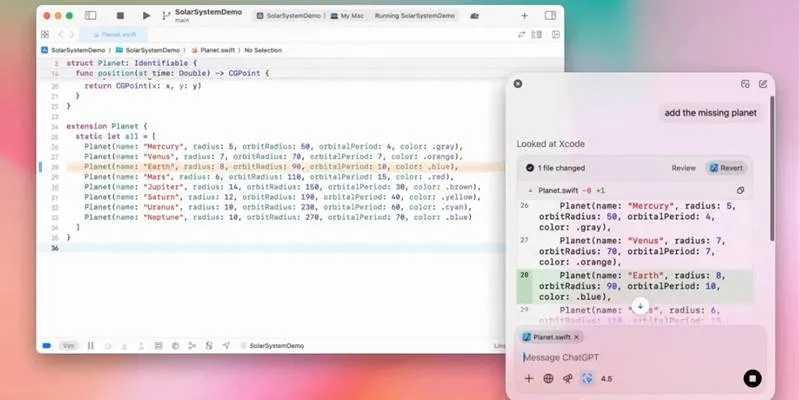Ubuntu Touch OTA-8: VoLTE, WPA3 Wi-Fi, and Enhanced Security Features
Ubuntu Touch has hit a significant milestone with the release of OTA-8, the latest over-the-air update for devices running the Ubuntu 20.04 LTS mobile base. This update continues to build on the sturdy foundation laid by the UBports Foundation, offering notable enhancements in network compatibility, security, and platform reliability. With the introduction of Voice over LTE (VoLTE) support, WPA3 Wi-Fi encryption, and several under-the-hood improvements, OTA-8 underscores a steadfast commitment to mobile privacy, user autonomy, and open-source development.
Enhancing Daily Usability
Since transitioning to the Ubuntu 20.04 base, the UBports community has consistently worked to enhance the OS’s capability to serve as a reliable daily driver for supported smartphones. This update tackles critical compatibility challenges while improving connectivity, encryption, and system integrity.
VoLTE Integration in Ubuntu Touch
The most anticipated feature in Ubuntu Touch OTA-8 is the inclusion of VoLTE, a technology that enables voice calls over LTE networks. Historically, Ubuntu Touch relied on older 2G and 3G technologies for calls. As providers phase out these older standards, VoLTE becomes crucial for mobile Linux users.
With OTA-8, UBports introduces preliminary VoLTE functionality on supported devices, allowing phones to make voice calls on 4G networks. This ensures long-term call support in regions where older cellular bands are phased out. VoLTE also enhances voice quality, reduces connection times, and is more power-efficient.
The VoLTE feature is still undergoing device-specific testing and refinement. While some hardware platforms now support it out of the box, users are encouraged to verify modem compatibility and network provisioning. Its inclusion in the core OS is a foundational leap toward modernizing Ubuntu Touch’s telephony stack.
WPA3 Support for Stronger Wi-Fi Security

Another major upgrade in OTA-8 is the introduction of WPA3 Wi-Fi encryption support. WPA3 is the current standard for wireless network security, providing enhanced protection against offline password-guessing attacks and better handling open network encryption through Opportunistic Wireless Encryption (OWE). By supporting WPA3, Ubuntu Touch aligns with modern Wi-Fi security norms and prepares users for future hardware and router ecosystems where WPA2 is deprecated.
This enhancement ensures Ubuntu Touch users can securely connect to networks using the latest encryption standard. It also makes the system more compliant with emerging enterprise and institutional requirements that mandate WPA3 for wireless connectivity.
WPA3 support in OTA-8 does not disrupt existing WPA2 compatibility. Devices retain the ability to connect to older networks while negotiating WPA3 capabilities when available. This dual-mode approach preserves backward compatibility and enables forward security.
Stability Refinements and System Fixes
Beyond networking and call infrastructure improvements, Ubuntu Touch OTA-8 includes numerous bug fixes and user experience enhancements. These range from graphical updates and UI polish to deeper adjustments within core system components.
Performance optimizations include smoother rendering in the Lomiri user interface, fewer frame drops when switching between applications, and faster boot times on select hardware. Application switching has improved for responsiveness, and touch gesture reliability has increased due to refinements in input tracking and display latency reduction.
The update addresses issues like erratic power reporting, media playback inconsistencies, and Bluetooth audio disconnections. Improved media frameworks now allow consistent audio output across headsets and speakers, and enhanced video rendering fixes past playback stuttering issues on low-power devices.
Users of the Morph web browser will also notice performance and compatibility enhancements. Updates to rendering engines lead to better support of modern web standards, cleaner site layouts, and reduced visual artifacts. Tab handling and window navigation have been streamlined, enhancing multitasking and session management.
Security Patches and Upstream Updates

Security remains a priority in OTA-8, which includes core security patches from the Ubuntu 20.04 LTS repository, addressing known vulnerabilities in the Linux kernel and several userland libraries. This ensures the mobile OS stays aligned with Ubuntu’s enterprise-grade security posture while maintaining independence from proprietary cloud services.
Security fixes address issues like privilege escalation vectors, buffer overflows, and network service flaws that could lead to data leaks or compromised sandboxing. AppArmor profiles and sandbox configurations have been reviewed and updated for key applications, further locking down potential misuse or exploitation surface areas.
These updates underscore UBports’ commitment to maintaining a hardened platform suitable for privacy-conscious users and institutions seeking alternatives to mainstream mobile ecosystems.
Device Rollout and OTA Delivery
Ubuntu Touch OTA-8 is being rolled out to eligible devices in stages, using UBports’ over-the-air update mechanism. Devices already transitioned to the Ubuntu 20.04 base—including the Volla Phone, Fairphone 4, and selected Pine64 models—are prioritized in this wave.
The OTA release model allows users to receive updates without needing to reflash or manually intervene. Devices will automatically check for updates and prompt users to install OTA-8 when available. While some older models remain on earlier Ubuntu Touch versions due to compatibility limitations, the development team is working on expanding hardware support through community ports and vendor collaboration.
In cases where VoLTE or WPA3 features are not immediately functional, users can expect further updates as device maintainers test and validate support for each configuration. UBports encourages testing and feedback to refine performance and identify compatibility issues across the project’s broad hardware base.
Conclusion
Ubuntu Touch 20.04 OTA-8 delivers a robust set of enhancements aligned with modern mobile standards. The introduction of VoLTE calling ensures network compatibility amid shifting telecom infrastructure, while WPA3 support strengthens wireless security. Together with a broad set of system-level updates and bug fixes, this release reinforces Ubuntu Touch’s position as a practical and privacy-respecting mobile platform.
As UBports continues to evolve Ubuntu Touch through community collaboration and technical innovation, this release marks a firm step forward in building a sustainable, secure, and open mobile ecosystem.
Related Articles

What Encryption Really Does in Modern Online Tools

All ChatGPT Users Can Now Access the 'Work with Apps' Feature

Top Antivirus Tools for Reliable Protection in 2025

Discover 7 Free Cloud Storage Services You Can Start Using Right Now

6 Ways to Automate Security and Identity Tools for a Safer Business

Discover 7 Free Cloud Storage Services You Can Start Using Right Now
Popular Articles

Boost Your Workflow with the Best Productivity Apps for iPhone in 2025

Top System Monitoring Software You Need for Smooth PC Performance

Your Guide to Facebook Automation: Save Time & Boost Engagement

How to Reverse Video Footage in After Effects and Best Alternatives

How to Import Post Ideas from CSV Spreadsheet in WordPress: A Guide

ShareX vs Competitors: Top Alternatives You Need to Know

5 Best Alternatives to Media Player Classic for a Smooth Viewing Experience

Free PDF Form Creators for Windows: 10 Tools Worth Trying

Step-by-Step Guide to Converting M2TS to WMV Easily

Get Started with Free PSD Templates: A Designer’s Guide

Bootable USB Creation Made Easy: 3 Tools You Should Be Using Now

 mww2
mww2